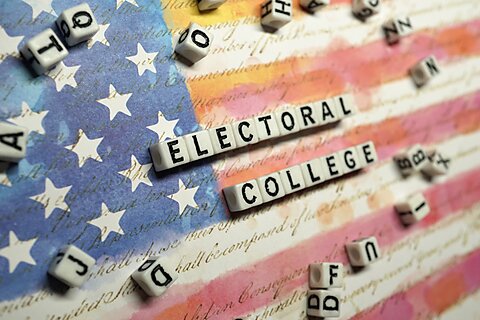The Constitution’s Electoral College arrangement for selecting a president has long been the object of popular and scholarly discontent, for well‐known reasons. It sometimes elevates a winner who lost the popular vote, it gives states influence that is not always proportional to the size of their electorates, it encourages candidates to spend time campaigning in a handful of swing states, and so forth.
In a recent Cato Research Brief in Economic Policy, Georgy Egorov and Konstantin Sonin argue that one countervailing advantage of the Electoral College (EC) often goes unappreciated: it reduces the danger that presidential elections will be decided by fraud or misconduct. To begin with, the EC renders fraud in presidential elections unavailing, and thus disincentivizes it, in states where the race is not going to be close enough for it to make a difference. In the 2020 election, only about a half‐dozen states were close enough for the Trump campaign to contest after the fact.
What’s more, the latent potential for successful fraud should not be assumed to be evenly distributed among states. Egorov and Sonin argue that states where both parties have significant representation in government are likely to have stronger guardrails against fraud than states dominated by one party. It seems plausible, for example, that “street‐level” fraud at particular polling places is better checked if prosecutors, judges, and other officials are drawn from a mix of party backgrounds.
And if the question is one of election subversion from on high—say, the governor, state legislature, or county canvassing board that tries to replace the voters’ choice of candidate with a different one after the fact—such subversion is likely to run into strong obstacles in a “purple” state, as it did with Trump attempts to overturn the 2020 election results in Georgia, Michigan, Pennsylvania, and Arizona.
It might be added that to the extent public or judicial scrutiny of election results plays an important role in evaluating fraud claims and deterring election subversion, a system in which that scrutiny can be focused on a handful of states may work more efficiently than one in which every polling place and canvassing board nationwide needs to be scrutinized or recounted from the ground up. Again, the claims of fraud in the 2020 election can serve as an example, since the most straightforward way to reach a conclusion about their merits is to focus on the close states one by one.
The authors model incentives under each system and conclude that the EC’s fraud‐cabining effects may be especially important in periods of heightened voter polarization:
We developed a theoretical model to determine the resilience of the Electoral College and popular vote system to fraud. Our model measures the resilience of each electoral system as the difference between the fair vote tallies of the two parties that would be required to deter vote fraud. In other words, how far ahead does one party have to be for the other party to perceive committing fraud as futile? Our model demonstrates that when the difference between the fair vote tallies of the two parties is identical in the Electoral College and popular vote system, the incentive to commit fraud is higher in the popular vote system. This means that the Electoral College can tolerate a smaller difference between the fair vote tallies of each party than the popular vote system and result in the same degree of incentive to deter fraud. Perhaps surprisingly, our model shows that an increase in polarization (within or between states) does not hurt the ability of the Electoral College to deter fraud, but it does increase the incentive to commit fraud in the popular vote system.
More Cato commentary on the Electoral College from Robert A. Levy (and more), John Samples (and more), Roger Pilon (Framers “were no friends of direct democracy”), Ronald Rotunda (“prevents candidates with only regional appeal from winning”), and podcasts with Levy, Samples, and author Emily Conrad. Cato scholars were closely involved in the successful 2022 effort to clarify and improve the old Electoral Count Act and replace it with the Electoral Count Reform Act. And Andrew Craig finds fatal flaws in the National Popular Vote Interstate Compact (NPVIC).

